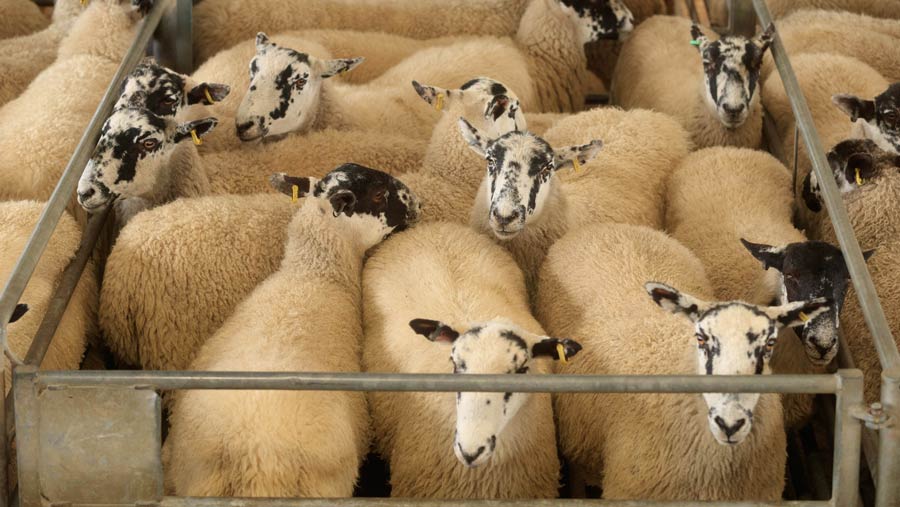NSA issues disease risk warning amid annual sheep sales
 © Tim Scrivener
© Tim Scrivener Sheep industry leaders have issued a stark flock health warning, reminding farmers to do all they can to reduce disease transmission risk during the sheep sale season.
Foot health, parasite resistance and iceberg diseases are among the risks posed when buying replacement breeding sheep, warn officials at the National Sheep Association (NSA).
See also: Advice for buying rams and observing quarantine protocols
NSA chief executive Phil Stocker said it was only a matter of time before more breeding sheep suppliers provided health status indication.
“This is all about reducing the risks, rather than any guarantees of ‘disease-free’ status,” he added. “I have lost count of the number of farmers I have spoken to, that have unsuspectingly bought in diseases to their flocks when purchasing replacements.”
‘Under attack’
Midlothian sheep breeder and Mule Group chairman Derek Hall said he was “disappointed” at the lack of recognition from the NSA towards Mule breeders making concerted flock health efforts.
However, he admitted progress had been slow in “turning the ship around”.
He said the stratified sector felt “under attack from all sides”, while other breeds were being supported by government methane funding and vets pushing closed-flock policies.
Recently 10 Lakeland North of England Mule (NEMSA) breeders had cull ewes screened for maedi visna (MV) through blood tests offered by Axiom Veterinary Laboratories at Junction 36 market.
Mr Hall added: “By the time the farm’s lambs are sold, we hope to have a significant number of MV-monitored Mules. Farms involved will get an MV-monitored certificate if their test results are free of MV.
“More mule breeders are screening for iceberg diseases and they are lambing outdoors, selling 1.8 lambs a ewe, and it’s this kind of productivity that should be evaluated for methane efficiency.”
Mr Stocker told Farmers Weekly he was a firm supporter of stratification and had no breed bias and understood that some breeders may find the NSA announcement challenging.
He said: “Taking responsible action is surely better to protect reputations and business in the longer term. For buyers and sellers, this is without doubt an area where a good conversation with your sheep vet can pay dividends.
“We have established health monitoring schemes, such as those run by the Premium Sheep and Goat Health Scheme, and now we have support schemes, such as the Animal Health and Welfare Pathway in England.
“[There are] similar approaches in devolved nations that can help to cover some of the costs of those farmer/vet conversations.”
Risk reduction
To minimise the risk, farmers are reminded to:
- Have a quarantine period: talk to your vet about quarantine procedures to monitor incoming animals and check for defects
- Source from known buyers: trusted farms can be a good place to source stock if there is confidence that sheep are trouble free and have held body condition well
- Conduct blood tests: random blood tests on bought-in sheep are advisable. Do this in a quarantine period when they are isolated from the rest of the flock
